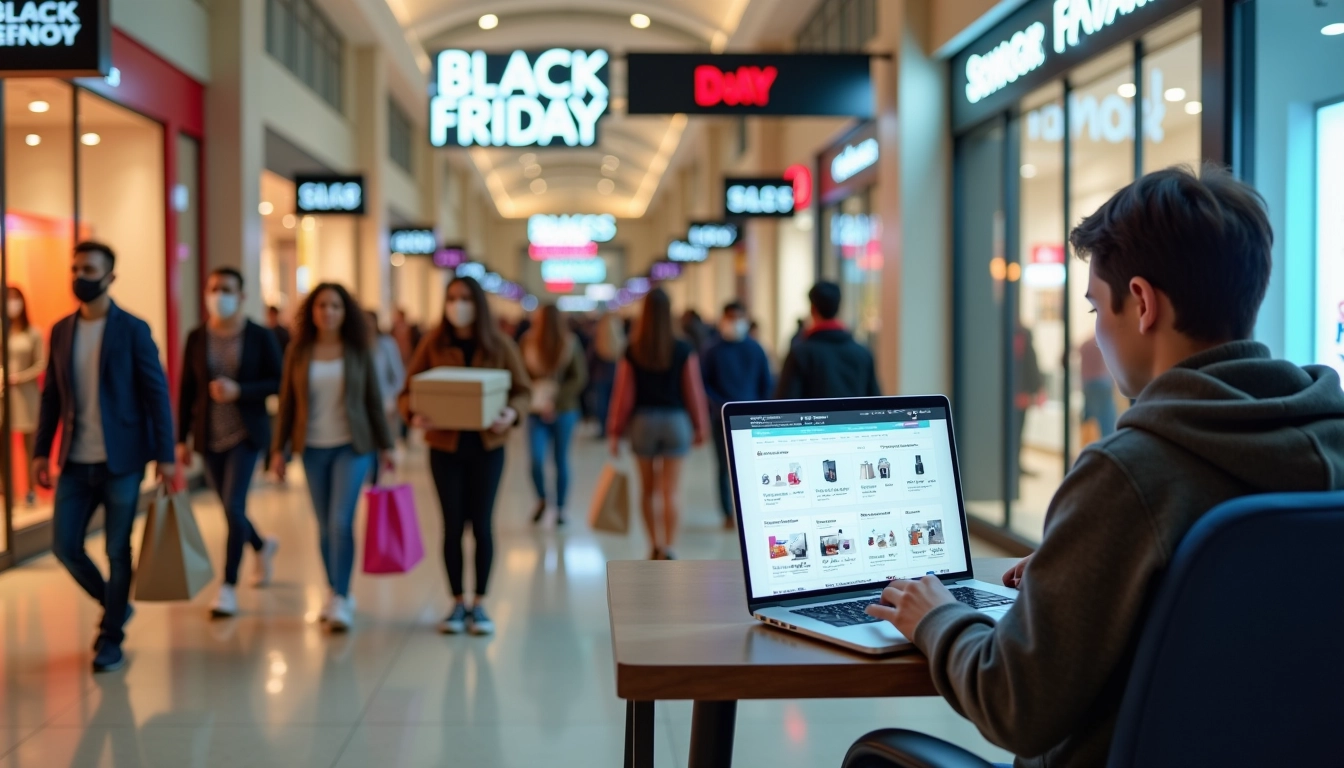Let’s explore the significance of Black Friday, a day that has become synonymous with incredible deals and frenzied shopping. As we approach November 29, 2024, it’s time to uncover the impact of this retail phenomenon that has transformed the holiday shopping season. From its humble beginnings in Philadelphia to its current status as a global event, Black Friday has become a cultural touchstone that reflects our consumer habits and economic landscape. But what lies beneath the surface of this shopping extravaganza? Discover the hidden facets of Black Friday that go beyond the discounts and doorbusters.
The Origins of Black Friday: From Chaos to Commerce
Black Friday’s roots can be traced back to the 1950s in Philadelphia. Initially, it described the chaos that ensued when hordes of shoppers and tourists flooded the city before the Army-Navy football game held on Saturday. Retailers, hoping to attract customers, began offering major discounts. As one retail historian notes, “Black Friday transformed from a headache for city officials into a goldmine for businesses.” This shift marked the beginning of a new era in holiday shopping.
The Economic Impact: A Retail Revolution
Black Friday has evolved into a critical economic indicator. Dr. Mark Zandi, chief economist at Moody’s Analytics, explains, “Black Friday sales often set the tone for the entire holiday shopping season, providing valuable insights into consumer confidence and spending patterns.” With some years seeing over $10 billion in sales in the United States alone, it’s clear that this single day can make or break annual revenue targets for many retailers.
From Brick-and-Mortar to Click-and-Order
The digital age has revolutionized Black Friday. No longer confined to physical stores, shoppers can now snag deals from the comfort of their homes. This shift has given rise to its online counterpart, Cyber Monday. As Stewart Bendle, a retail expert from Tom’s Hardware, observes, “The line between Black Friday and Cyber Monday has blurred, creating a seamless shopping experience that caters to both traditional and digital consumers.”
The Global Phenomenon: Black Friday Beyond Borders
What started as an American tradition has spread worldwide. Countries from the UK to Brazil have embraced Black Friday, adapting it to their local retail landscapes. However, it’s worth noting that not all cultures have jumped on the bandwagon. In Australia, for instance, the equivalent shopping event is Boxing Day, which falls on December 26, showcasing how different regions put their own spin on major sales events.
The Environmental Cost of Consumerism
While Black Friday boosts economies, it comes with environmental concerns. An Environmental Protection Agency report highlights the increased packaging waste and carbon emissions associated with the event. As one environmental activist puts it, “Black Friday has become a symbol of overconsumption, with long-term ecological consequences that far outweigh short-term economic gains.”
Navigating the Sales: Tips for Smart Shopping
To make the most of Black Friday without falling into consumerist traps, consider these expert tips:
- Set a budget and stick to it religiously
- Research prices weeks in advance to spot genuine deals
- Prioritize needs over wants to avoid impulse purchases
- Consider sustainable alternatives, like second-hand items or experiences
The Social Impact: Community and Controversy
Black Friday’s impact extends beyond individual consumers. It affects communities, workers, and social structures. While it creates seasonal employment opportunities, it also raises questions about work-life balance and fair labor practices. As one retail worker shared, “Black Friday feels like running a marathon while juggling chainsaws. It’s exhilarating but exhausting.”
The Psychology of the Deal: Why We Can’t Resist
The allure of Black Friday deals taps into deep-seated psychological triggers. Dr. Sarah Whittle, a consumer psychologist, explains, “The fear of missing out, combined with the thrill of finding a bargain, creates a powerful cocktail that overrides rational decision-making.” Understanding these mechanisms can help shoppers make more mindful choices.
Sustainable Alternatives: Reimagining Black Friday
As awareness of environmental issues grows, some retailers and consumers are seeking alternatives to traditional Black Friday shopping. From “Green Friday” initiatives promoting eco-friendly products to “Buy Nothing Day” protests, these movements aim to balance commerce with consciousness. As one sustainable fashion designer puts it, “Black Friday doesn’t have to be a black mark on our environmental record.”
The Future of Black Friday: Trends and Predictions
What does the future hold for Black Friday? Experts predict a continued shift towards online shopping, personalized deals, and extended sale periods. “Black Friday is evolving from a single day event to a season-long celebration of deals,” notes a prominent e-commerce analyst. This evolution may see Black Friday become more integrated with other shopping events, creating a more holistic approach to holiday retail.
As we approach Black Friday 2024, it’s clear that this event is more than just a day of discounts. It’s a mirror reflecting our economic priorities, consumer behaviors, and societal values. Whether you choose to participate or opt out, understanding the broader implications of Black Friday can lead to more informed decisions. Like a tidal wave of commerce, Black Friday has the power to lift economic boats or swamp unsuspecting consumers. By approaching it with awareness and intention, we can navigate these retail waters more successfully, balancing the thrill of a good deal with responsible consumption.
As we reflect on the significance of Black Friday, it’s worth considering how our individual choices contribute to larger economic and environmental patterns. Just as we mark days like World Civil Defence Day or International Women’s Day, perhaps we should view Black Friday as an opportunity to examine our relationship with consumption and its global impact. Whether you’re racing for doorbusters or opting for a quiet day at home, remember that each purchase is a vote for the kind of world we want to create. Let’s make those votes count.
